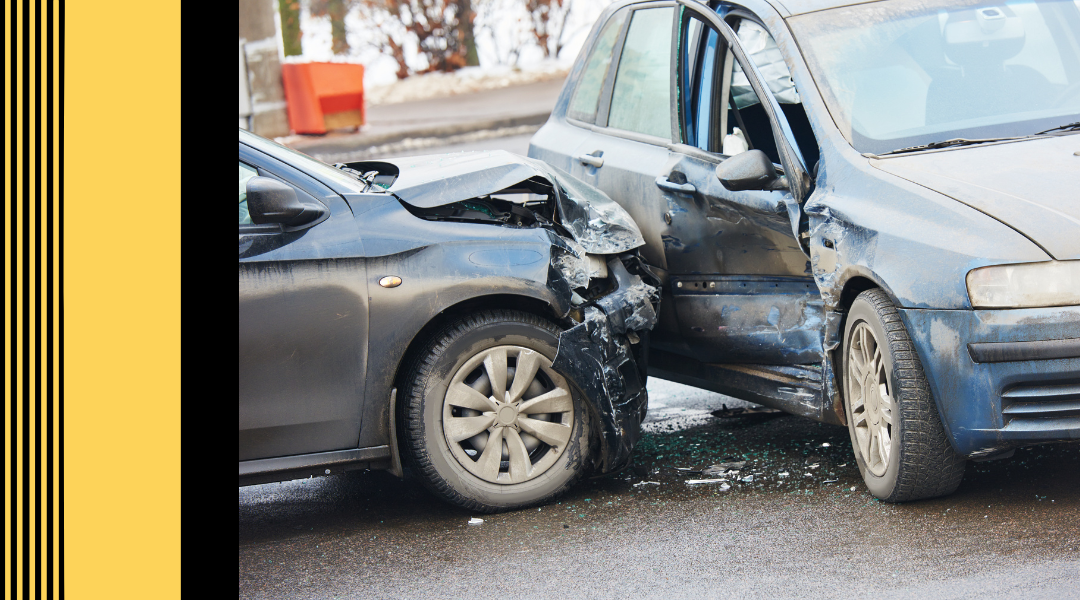It can be challenging to know what to do after an accident. Car accidents occur unexpectedly, and a rush of adrenaline and stress might make it difficult to think rationally. However, in the moments following a collision, when you may be dealing with catastrophic injuries or thousands in property damage, you’ll be faced with several difficult decisions to make as an accident victim. That’s why you need to know what to do if you’re involved in a car accident, whether it’s your fault or not. In our last blog we talked about what happens directly after a car accident, in part 2 we explore being prepared beforehand, minor accidents, and what to do if you’re at fault.
How To Prepare for a Car Accident
Here are some steps you may take to ensure that you are prepared in the event of an accident:
- Keep an emergency safety kit in your trunk. This kit should include reflective emergency triangles, an emergency medical kit, water, a blanket, a flashlight, a disposable camera (your phone can become damaged in the accident), flares, and a notepad with a pen.
- Your major documents, such as a copy of your license, your vehicle registration, a list of emergency contacts, and copies of your health insurance cards, should all be kept in the glovebox.
- If your auto insurance company has a mobile app, download it. You can upload accident photos and keep a copy of your proof of insurance.
What To Do After a Minor Car Accident
After a car accident, the things you do tend to be universal, even if it was a minor collision. However, it is essential to make a few distinctions. After a minor car accident, the first thing you need to do is put your hazard lights on and pull off to the side of the road. You are required by law to stop, even after a minor accident, and you could face criminal charges if you do not stop. The next thing you need to do is contact the police department so they can file an official police report. This is especially important if you need to pursue compensation for damages. The accident report prepared by the responding officer can be used as evidence for your insurance claim. Next, you need to check all vehicle occupants for injuries, even if the accident seemed minor. If someone is injured, call 911 and ask for an ambulance. Lastly, exchange information with everyone involved, including eyewitnesses. Get their full names, addresses, and cell phone numbers. When you speak to witnesses, write down their statements regarding what happened.
What To Do After a Car Accident That’s Not Your Fault
If the motor vehicle accident was clearly the fault of a negligent driver, they have to report the incident. But you shouldn’t trust them to accurately relay all of the accident details to the proper authorities and insurance company. You might only be able to prove that the crash happened with evidence collected from the accident scene.
The following accident details could contribute as proof for the accident claim:
- Name, driver’s license number, address, and phone number of the at-fault driver
- Proof of Insurance: The name of the at-fault driver’s insurance company and their insurance policy number (found on their insurance card)
- Names, phone numbers, addresses, and statements from witnesses of the incident
- Pictures of the accident scene showing the accident scene, vehicle damage, road conditions, and traffic signs
If you aren’t sure who’s at-fault for the accident, this evidence can be helpful. Calling the police to file a police report will also serve as leverage when trying to settle with the at-fault driver. After speaking with police, contact an accident lawyer and your insurer. If the other driver’s insurer denies responsibility for the accident, your insurance company will contest any medical expenses and property damage expenses with the other driver’s insurer.
What To Do After a Car Accident That’s Your Fault
What should you do if you were in a car accident and it appears to be your fault?
The first thing you need to remember is to never admit fault or apologize, no matter how much it may seem like it was your fault. While it’s important to know what to do after an accident that may be your fault, there are also a few things not to do if an accident was your fault.
- Don’t get angry: Your emotions may be running high after the accident, and understandably so. However, getting mad at the other driver will only hurt your case.
- Don’t admit fault: Again, even if you think you caused the accident, don’t say that to the other driver. Don’t even apologize for the accident. The other driver may share fault for the collision and the costs for damage.
- Don’t talk about the accident: Never discuss the accident details with the other party, their insurance adjuster, their attorney, or anyone else other than your lawyer. Be honest with the police, your lawyer, and your auto insurance company, but don’t say more than necessary.
Contact Us
Get in touch with us today to learn more about what to do in a car accident and to get the compensation you deserve! You can contact us by filling out the contact form on our website.

